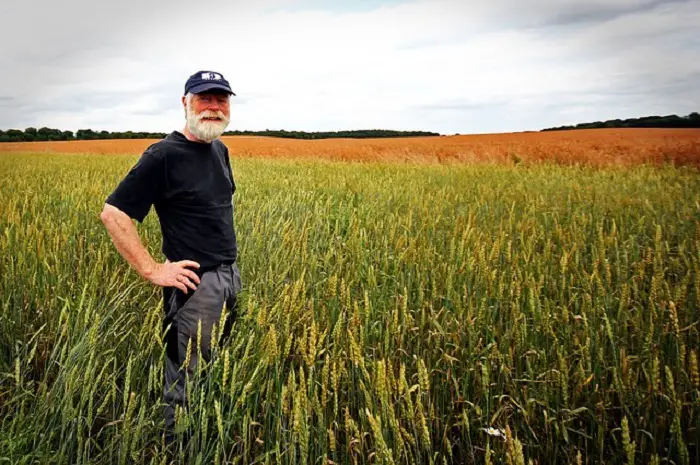The return to a more natural and organic farming system has been a work in progress, but it holds great promise both for the health of our soil and ecosystems as well as the health of the individual person.
The progress has been held back, however, in large part due to a lack of organic farmers in the United States.
While consumers are clamoring for organic and healthier foods, many companies are being forced to important non-GMO and organic corn, meat and other items from countries like Romania and Australia in order to meet demand.
Though interest in organic farming is rising as well, especially among young people, one persistent reservation has caused many to think twice about trying it as a career.
But now, a new report is showing that organic farming might be a better choice not only for health reasons, but also for a farmer’s livelihood as well.
Organic vs. Conventional: Which is More Profitable?
According to a study released in June 2015 from the Washington State University Professor of Entomology David Crowder, organic farming is far more profitable these days than “conventional” farming.
Results from his latest meta-analysis of more than 120 studies on the economics of organic farming found that organic farmers typically earn between 22% and 35% more than conventional farmers.
“Public perception is that if you’re doing organic, maybe you’re sacrificing financial sustainability, but we show that’s really not the case,” says Crowder in this article from Independent Science News. “If you’re getting a 30% margin on your competitors, that would be the envy of almost any business.”
The research was published in the journal PNAS.

Organic farming takes a little more labor but it is now considerably more profitable according to one study. PHOTO: Pixabay
Organic farmers typically get a 29% to 32% higher price for their products, but they are forced to spend 5% to 7% more on labor; other costs are largely the same.
Crowder found that organic farming typically yields a little less than conventional, however he noted that organic farming provides better soil quality, increased biodiversity and other ecological benefits.
Only about 1% of farming uses organic methods according to Crowder.
“…There’s a really high demand for organic that isn’t being met right now,” he said.
Proponents of GMO foods have often said that their crops are needed to “feed the world,” while organic supporters say that they are not necessary and damage the soil and ecosystems as well as human health while consolidating our food system in the hands of large corporations.
Regarding yields, it’s worth noting that permaculture and biodynamic farming (see this book ‘Biodynamics Makes Organic Work’) remain largely untapped bastions of organic that haven’t been explored yet and can boost yields dramatically; compared with conventional farming which has the backing of countless millions in research yet still has proven to be unsustainable (note for example the dramatic loss in crop minerals and vitamins that has occurred in the industrial farming era).
A major UN report also found that small-scale organic farming is the way to “feed the world,” and that food waste and access to the poor is also a huge problem in “feeding the world” as we waste roughly half of what we produce.
At the end of the day, the marketplace will decide the winner, and it’s become abundantly clear that organic is making a serious comeback.
Thanks for installing the Bottom of every post plugin by Corey Salzano. Contact me if you need custom WordPress plugins or website design.




